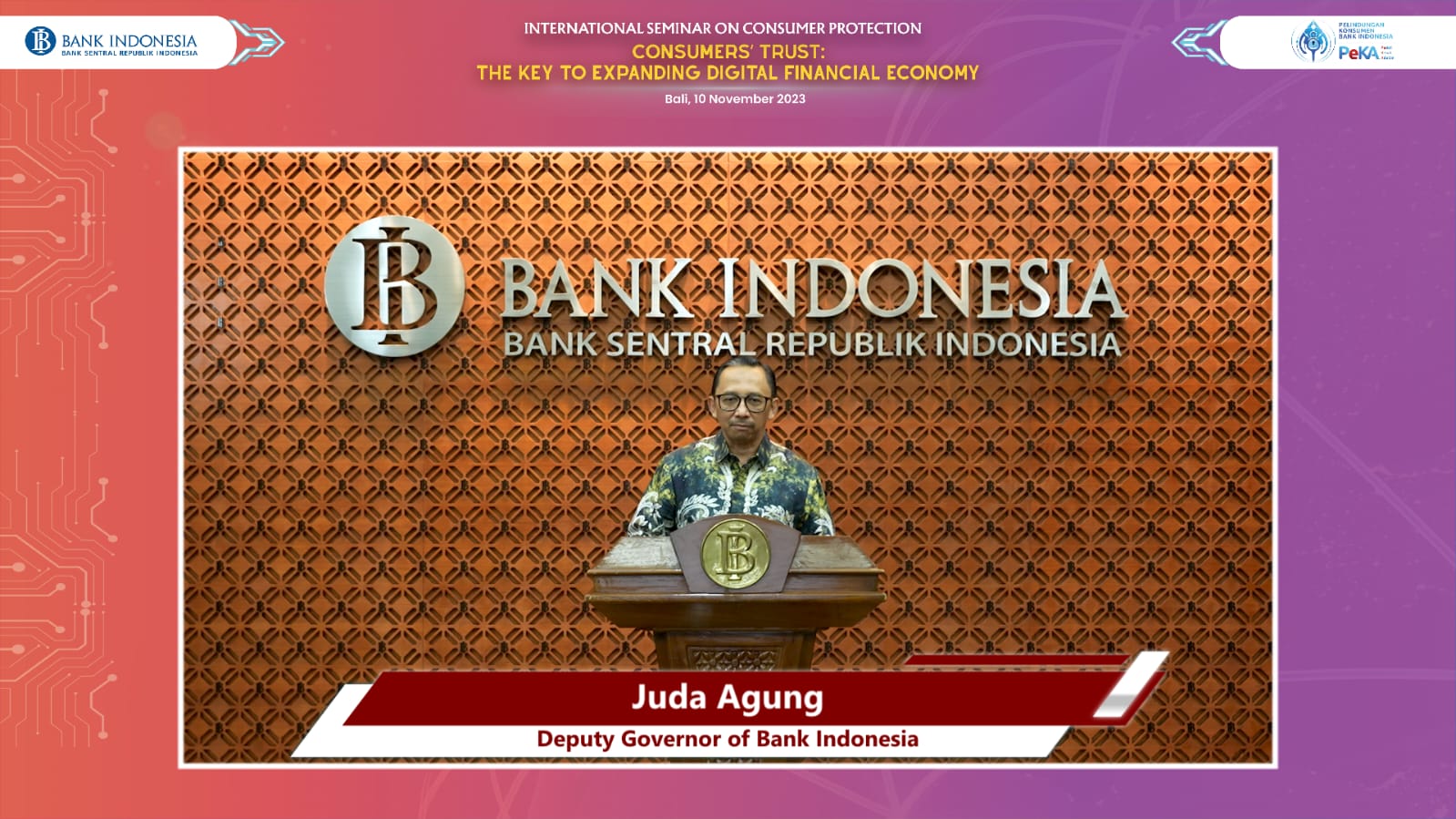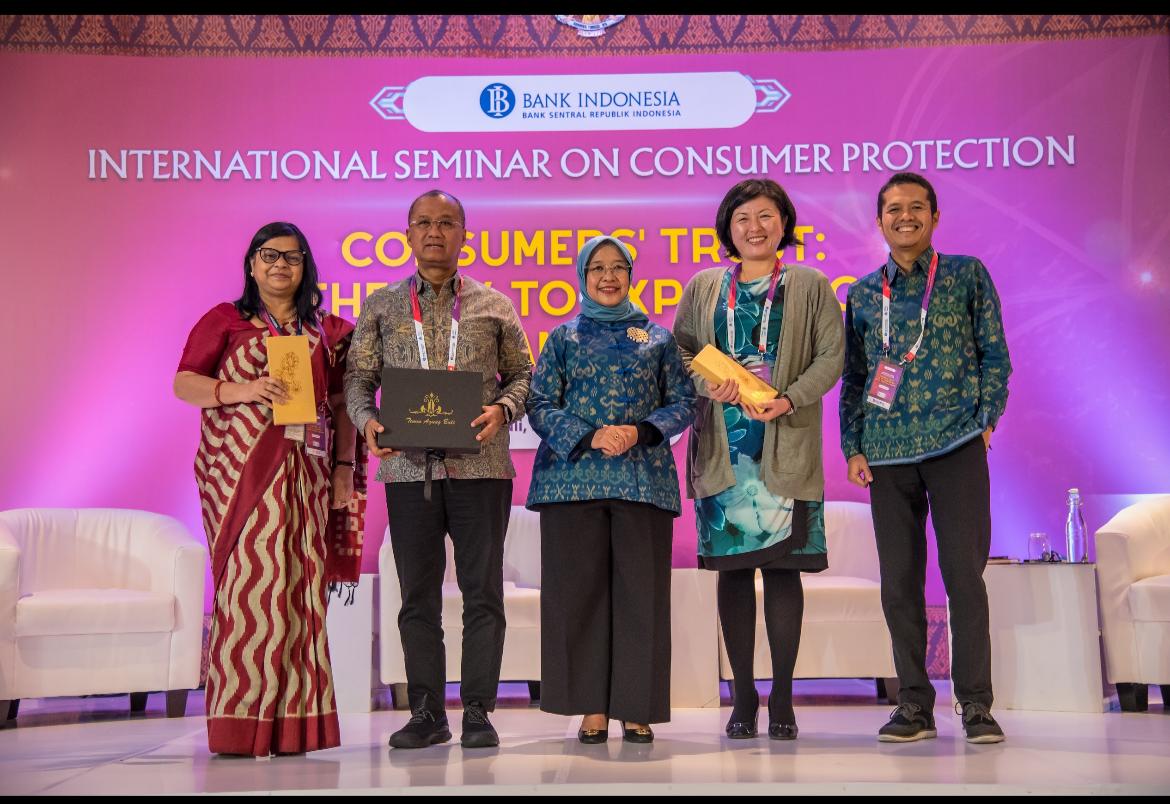Consumer Trust: The Key To Expanding Digital Financial Economy
 14 November 2023
14 November 2023

Consumer protection provided by the regulator, in this case Bank Indonesia (BI), is present as a preventive action as well as a means of solving problems related to financial services, including payment system services. The authorities continue to strengthen this to guarantee legal certainty for consumers to be protected from unfair and harmful practices.

It was presented in a press release issued by Bank Indonesia on Friday, November 10, 2023. It was raised at the International Consumer Protection Seminar, which raised the theme “Consumer Trust: The Key To Expanding Digital Financial Economy”, which was organized by Bank Indonesia.
The Deputy Governor of the Bank of Indonesia (BI), Juda Agung, presented three key points that should be the attention of the authorities in their responsibility to make an ecosystem safe for all consumers, especially for vulnerable communities.
- First, give priority to digital financial literacy to empower consumers by sharing knowledge around financial services.
- Second, enforce a regulatory framework that supports innovation and enhances market integrity by preserving transaction data and customer identity.
- Third, to improve consumer protection, regulators, technology companies, and financial institutions must work together. The authorities must collaborate with institutions and communities in remote areas.
This is becoming crucial as the digital economy grows, which drives an increase in financial services involving fraud, transparency, data leaks, and cyber risks. People as consumers are becoming more empowered to defend their rights in the midst of risks through strong consumer protection. Consumers will become more confident in conventional and digital financial services.
In this digital age, society faces a variety of risks. Some of the most common modes are SIM swaps, data abuse, Ponzi schemes, and numerous unauthorized service providers. The latest mode is the transfer of the ".apk" file through a communication medium, which has the ability to retrieve victim data and money. In the case of the ".apk". file mode, Indonesia accounts for 15% of all global fraud victims. It drew the attention of regulators, who then placed this case as one of the main concerns for education and consumer protection. The public should be vigilant about this, as well as other modes. One of the main consumer efforts to avoid this is to maintain the confidentiality of personal data and ensure the accuracy of the information they receive.
As users of financial services, the public may file a complaint with the BI-regulated Consumer Protection if they find that the organizer violates the Bank of Indonesia Regulations or accepts harmful practices. This consumer protection includes consumers of payment system organizers, organizers of money service activities, parties engaged in activities in the money markets and foreign exchange markets, and other parties regulated and supervised by Banca Indonesia.If a consumer submits a problem to an organizer covering the coverage and no solution is found, BI will deal with it through training, consultation, and facilitation. This treatment will emphasize, in particular, the rights and obligations of the organizer and consumer.

The international consumer protection seminar draws the attention of sources from national and international institutions and central banks. Otoritas Jasa Keuangan (OJK), Consultative Group to Assist the Poor (CGAP), National Bank of Malaysia (BNM), Central Bank of Nigeria (CNB), and Reserve Bank of India attended the discussion. (RBI). Further discussions complement how best practices are for avoiding financial fraud in the digital age. Various initiatives were revealed from institutions and industry, including representatives from the Ministry of Communications and Informatics of RI, Payments Network (PayNet) Malaysia, International Telecommunications Union (ITU), and Google Indonesia. The seminar is expected to strengthen the role of consumer protection, especially in the face of various threats in the digital age.
Source :Bank Indonesia

